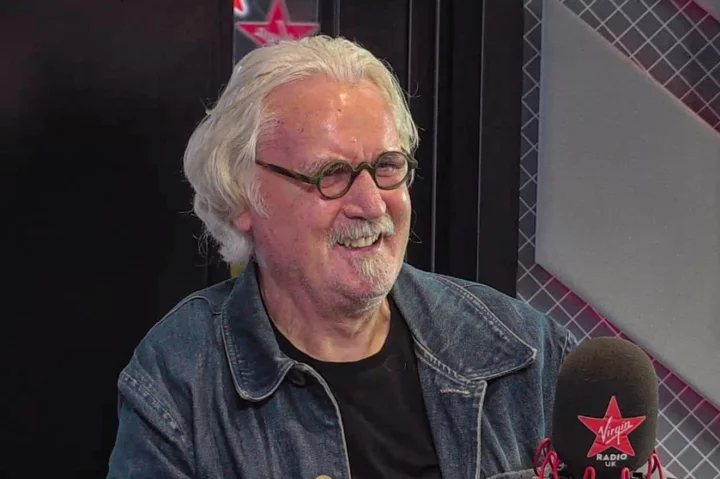
Billy Connolly says reports of his ‘demise have been greatly exaggerated’
Billy Connolly mocks misguided reports of his “demise” in an extract from his new autobiography. The Scottish actor and retired stand-up comedian, nicknamed “The Big Yin”, was diagnosed with Parkinson’s disease in 2013. Parkinson’s is a brain disorder that causes unintended or uncontrollable movements, such as shaking, stiffness, and difficulty with balance and coordination. Often, the disease can become more severe over time. During an interview published in September, it was revealed that Connolly had suffered “a couple of serious falls” and once broke his hip as a result of deteriorating balance. He also expressed having difficulties with walking. Despite these growing physical challenges, the What We Did on Our Holiday star clearly maintains a positive outlook about his health. In his new memoir, Rambling Man: Life on the Road, Connolly clarifies that he doesn’t feel “close to death”. “You see, reports of my recent demise have been greatly exaggerated,” he states in an extract shared with The Telegraph. “There was a week a few years ago where on Monday I got hearing aids, Tuesday I got pills for heartburn, and Wednesday I received news that I had prostate cancer and Parkinson’s disease. But despite all that, I never ever felt close to dying.” Connolly also writes about his feelings of comfort when in a cemetery, and how he reliably makes an effort to attend funerals. He recalls his manager being bewildered by his commitment, telling him: “Billy – even if you haven’t seen someone for 25 years and they die in another country you’ll jump on a plane.” “I just like to see people off,” the comic explains. “It’s important to me. Boys from school. Apprentices from the Clyde. Welders. It’s a bit like a school reunion. Seeing all the people from that place and time – that world I was once part of.” Five years after his diagnosis, Connolly retired from his stand-up career due to the increasing difficulties of the illness, and has previously offered insight into the realities of living with Parkinson’s. Though he said he does not feel close to dying yet, he has spoken with his wife, psychologist Pamela Stephenson Connolly, about the message he’d like on his gravestone when the time comes. He wrote: “I was thinking I’d like: ‘Jesus Christ, is that the time already?’ on mine, but my wife Pamela was shaky about it, so we settled on ‘You’re standing on my balls!’ in tiny wee writing.” Rambling Man: Life on the Road is out now. Read More Billy Connolly says ‘cruel’ Parkinson’s disease has made it difficult to walk Sir Billy Connolly unveils four new drawings for sale Prince William reveals he can’t handle overly spicy food or he’ll ‘start sweating’ Billy Connolly says ‘cruel’ Parkinson’s disease has made it difficult to walk How to get rid of bedbugs: Signs and symptoms amid threat of UK invasion Dawn O’Porter: ‘I fantasise about the other side of menopause’
1970-01-01 08:00
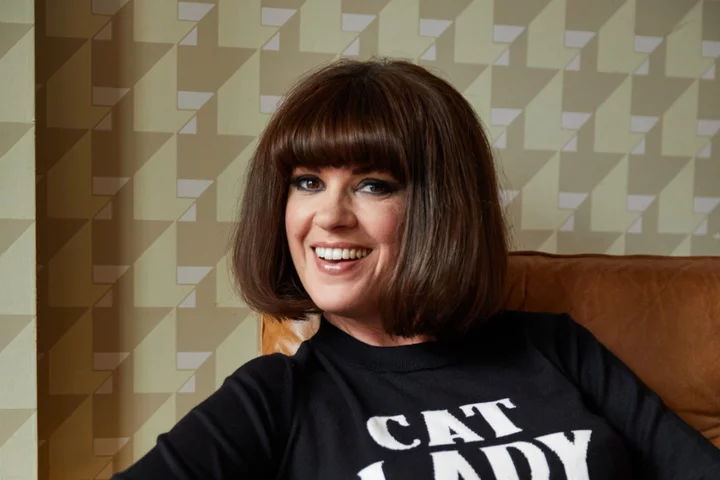
Dawn O’Porter: ‘I fantasise about the other side of menopause’
Knowing her limits is a “revelation”, says Dawn O’Porter, something she discovered in her mid-40s. For the former TV presenter and author – her latest book, Cat Lady, which was released in October last year – it’s something she’s had to learn. “I love drinking booze and eating really indulgent food, but I’m also really into health stuff as well,” she says. “I’m one of those people that’s really good – if I go to a party and it gets to 10:30pm [and] I’m not really feeling the booze, I just stop drinking – but I can stay out until two in the morning. I’m able to turn it off, and I don’t overindulge when I’m done – which I think is a real mid-40s revelation. “I know my limits – I go to everything, I do everything, I just stop when I know I’m done.” For O’Porter, 44, who shares two sons, Art, eight, and Valentine, six, with actor husband Chris O’Dowd, becoming a mother helped shift her perspective. “Since I’ve had kids, I know that I’m going to get woken up at six o’clock in the morning – you’ve got to make better decisions,” she says. “Like everybody, if I don’t do the work, I don’t get paid – and I don’t have the luxury where I can’t get paid. I have to be at my desk at 10 o’clock in the morning, and before I’ve got to my desk I’ve had to feed two humans, get them dressed, get them to school, walk two dogs, pull the house together and do all this stuff. “I know now that when I go on a big night out – which I do all the time, I love it – the next day is a write-off, so I can only do that once a week. It used to be three or four times a week, and it didn’t affect me in the same way. “I definitely feel like it’s a great thing to get to an age when you know what you can and can’t handle.” This “willpower” is something she admits she “didn’t used to have”. But dedicating time to her wellbeing is important, as being in your 40s is a “weird time”, she admits. “You know what’s coming – menopause is coming. What are we in for? So I feel like I’m going to do my very best for myself until that happens. It might be fine, it might not – I don’t know.” O’Porter adds: “It feels nice to go into it in the best health you can be. I’m not an exercise person – I get really into Pilates for two months and never do it again – so I’m consistent about healthy food and skincare and all that kind of stuff.” She’s reminded of a speech Kristin Scott Thomas makes about menopause in the BBC black comedy Fleabag, where she says: “It is horrendous, but then it’s magnificent – something to look forward to.” O’Porter adds: “As someone who has had cramps and really suffered for so much of my life, I fantasise about the other side of menopause – it’s like this giant mountain you have to get over. “I might smooth through it and not even know it’s happening, or I might be one of those people who has a very difficult time – I’ve got no idea. I just want to feel good when I go into it. “I do feel like there’s this freedom on the other side – I’ll be rid of all the things that have weighed me down physically for so many years, and be pain-free and happy.” A healthy diet is particularly important for O’Porter, who can’t eat gluten because it causes her “quite severe pain”. She says: “I have to think about food a lot more than people who can eat gluten – I really read packages and all that stuff. And I’m obsessed with my skin – I really try and eat food that’s really, really good for my skin.” Other aspects of her self-care routine include taking supplements (“If somebody says it stimulates collagen, I’ll literally buy 10 of it!”), taking Epsom salt baths and carving out the time to read before bed. “I think that’s really looking after myself, [so] when I have nights where I’m completely hedonistic and start drinking at 10 o’clock in the morning and don’t get home until four, that’s fine. Because I take care of myself the rest of the time, I think my face survives the hangovers and the dehydration.” After 15 years living in America, in June this year, O’Porter and her family moved from Los Angeles to London – and she couldn’t be happier to be back. “There’s quite a transient vibe to LA, because very few people are born and bred there – there are some, obviously, but most people have come out for some sort of work experience they’re having. They either stay or go, and there’s this constant movement of people. “It was hard to imagine getting older there and settling, there was always this feeling of no matter who we’ve got in our lives, they will come and go – and that unsettled me in the last few years.” Back in London, “Everything I do is an investment in the future of living here, which feels really lovely,” O’Porter enthuses. “Every relationship I make – all my girlfriends or my mum friends – everybody is here for keeps.” She’s particularly looking forward to spending Christmas on this side of the world. “I started planning Christmas months ago – where we’re going to be, what we’re going to do, because ultimately, I love hosting it. I love doing the whole thing myself.” She’s hoping to host this year, and foresees absolutely no festive pressures, saying: “It doesn’t stress me out at all, I’d say it’s me at my absolute best. “I cook like Christmas Day on every Sunday for lots of people, I love it so much. I get really into it and I start drinking about 10 in the morning – it makes it more fun – we play Christmas songs and get the wine going early and cook all day.” Plus O’Porter – who is offering shopping consultations in collaboration with Etsy ahead of Christmas – is extremely easy to buy for. “I’m really easy. I genuinely say this from the bottom of my heart – go on Etsy and put in ‘cat’ and you can get me anything, any handmade anything – if it’s got my name on it, even better, with a cat on it. I am so simple.” To find thoughtful gifts for loved ones this Christmas and beyond, head to etsy.com/uk. Read More Everything you need to know about bedbugs as increase in numbers is predicted PE ‘enjoyment gap’ widens for girls: Why it matters and how we can help The psychology of Big Brother: How to survive in the house How to support someone coming out in their 30s and beyond Israel-Hamas conflict: How to talk to teenagers about distressing news stories Autumn décor ideas for a seasonal refresh
1970-01-01 08:00

Honda, Mitsubishi Corp sign pact to optimise use of EV batteries
TOKYO Japanese automaker Honda Motor and trading house Mitsubishi Corp have signed a pact to explore new businesses
1970-01-01 08:00
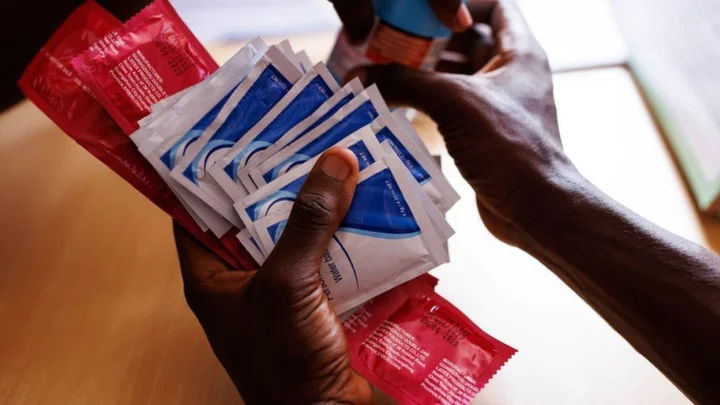
Ugandan MPs reject birth control for 15-year-old girls
The deputy speaker calls the idea "devilish", saying it is not the way to tackle teenage pregnancy.
1970-01-01 08:00

STL Cardinals rumors: Fan favorite trade, Arenado interest, surprise pitching target
The latest St. Louis Cardinals rumors include Nolan Arenado, Brendan Donovan and Japanese pitcher Yuki Matsui's free agency.
1970-01-01 08:00
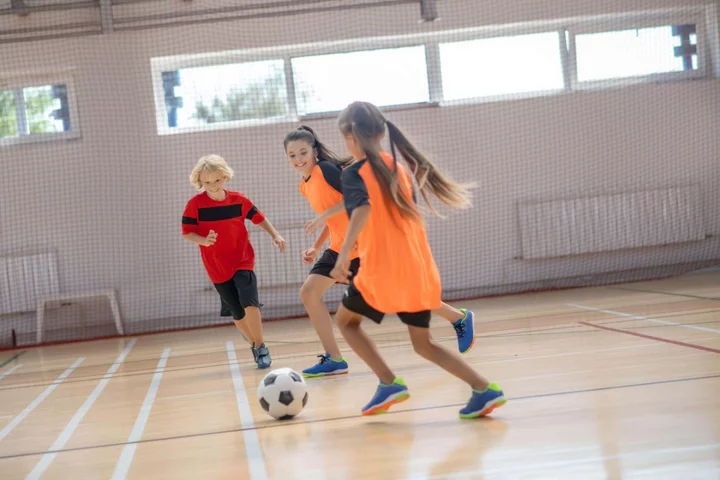
PE ‘enjoyment gap’ widens for girls: Why it matters and how we can help
The number of girls who say they enjoy school PE lessons has dropped over the last six years, new figures suggest. Less than two in three (64%) female pupils said they liked taking part in PE, compared with 86% of boys, according to the survey by the Youth Sport Trust charity – a drop from 74% of girls in 2016/17. The PE ‘enjoyment gap’ was even bigger for secondary school students – just 59% of girls in this age range said they enjoy PE. Nearly 25,000 pupils in England aged seven to 18 were polled by the charity. And 64% of the female respondents said they want to be more active at school but there are barriers getting in their way – including not feeling confident, having their period, being watched by others and worrying about how they look. Ali Oliver, chief executive of the Youth Sport Trust, said: “We must be absolutely committed to understanding the experiences of young women and girls, how these are constantly changing in a complicated world, and be better at working with them to address the barriers they face. “At a time of unprecedented low levels of social and emotional wellbeing, we know getting things right for girls in PE can be life-changing.” Listening to girls’ concerns It’s a topic that strikes a chord with many experts from this field. “It is so important to listen to girls’ concerns when it comes to the barriers they are experiencing, because we know these barriers are something that can stay with them throughout adolescence and into adulthood,” Vicky Fitzgerald, health improvement lead at health and wellbeing charity Nuffield Health, told the PA news agency. “Research has suggested that women in particular face more barriers to fitness than men, citing impacts such as a lack of time, motivation and knowledge, as well as caregiving responsibilities. By addressing these concerns from a young age, we are then able to support where needed, identify solutions, or provide alternatives to reignite engagement.” Wider benefits As the Youth Sport Trust highlights, the benefits of sports and PE are far-reaching. Charlotte Fray, rugby player with Leicester Tigers Women and a sports coach at Leicester Grammar School, agreed: “Sport is massive for confidence and forming lasting friendships. For young girls especially, if they enjoy what they’re doing they are going to have more confidence. “It’s a great way to remove any stressors from their life and have time to switch off, whilst discovering a love for sports.” Alex Caird, school games organiser at charitable trust, SASP (the Somerset Activity & Sport Partnership), added: “School sport is an incredibly valuable tool to teach life skills that are transferable from classroom to sporting environments and back again, and it is fundamental that these opportunities are tailored to the young people we aim to impact.” Shifting mindsets Caird believes making accessibility part of the culture of PE and sports lessons plays an important part. “At SASP, we not only empower more students to get involved and feel confident, but also school staff to see the difference physical activity makes to their own teaching confidence, to try new things and seek out further opportunities for their students to flourish and grow,” Caird explained. “We’re determined to use sport as a vehicle to drive this healthier lifestyle change, as well as build physical activity into a healthy school culture that sees the benefits of holistic experiences for all young people in any activity, not just the ‘traditional’ sporting calendar setup.” Education around women’s health also needs to be a priority... Fitzgerald meanwhile added: “Education around women’s health also needs to be a priority. An understanding of menstrual cycles and how they impact young girls, confidence/self-esteem concerns, questions around skills or ability – having an understanding of how all of these impacts can affect an individual removes the pressure or fear of them having to explain it.” The power of role models Dr Jackie Day-Garner, associate dean of the School of Health, Social Work and Sport at University of Central Lancashire, believes setting positive examples is key. “An active mother, parent, or teacher in the early years can help to influence positive behaviours around physical activity. And role models such as social media influencers or female athletes could help teenage girls to engage more in sport,” she said. “We’ve already seen the increase in the visibility of female sport on television, with England netballers contesting a World Cup final and the Lionesses winning the Euros and becoming finalists in the World Cup. We’ve also seen prolific sports women wanting to empower girls to play sport. For example, Leah Williamson speaking at the UN assembly about the topic.” While Fray believes having “different kinds of role models” helps inspire girls to find activities they’ll enjoy. “Rugby is great for this, as there is so many different shapes and sizes within the game, that everyone can find a role model. Girls can realise they don’t have to fit a certain category to play sport. There are so many different sports out there,” she added. Widening the options Fitzgerald believes we also need to show girls from a young age that there are lots of different ways to be active. “If PE isn’t enjoyable, try to find an alternative which introduces exercise in a less-pressured environment. Programmes such as Nuffield Health’s Move Together is an example,” she said. “These free classes are specifically designed as a solution for the barriers that young girls have cited. “They are available in local communities and offer a multitude of classes, from Zumba to HIIT, strength training, cardio classes and more, to inspire young girls to find a type of movement they enjoy.” The choice of activities available in high schools is also important, added Day-Garner. “There has been too much emphasis on organised sport. It might be more appropriate to look at what activities girls are likely to engage with when they leave school, as women often a re-engage with exercise in their early 30s.They might join a gym or leisure centre, or participate in classes such as Zumba.” Read More The psychology of Big Brother: How to survive in the house How to support someone coming out in their 30s and beyond Israel-Hamas conflict: How to talk to teenagers about distressing news stories Autumn décor ideas for a seasonal refresh Why you shouldn’t tidy your garden too much in autumn World Mental Health Day: 5 ways to beat anxiety and change your life
1970-01-01 08:00

Steve Rider tells men to ‘recognise your vulnerability’ after prostate cancer diagnosis
Sports commentator Steve Rider has shared a message encouraging men to be conscious of their health after his prostate cancer diagnosis. Rider, 73, was told he had the disease last month after a biopsy. The former Grandstand and Sportsnight presenter will undergo surgery to treat it this weekend. Ahead of the operation, Rider shared some insight into his journey to diagnosis, which began when a friend was diagnosed during a routine health check. “He had a scan which showed some alarming things going on with the prostate and within a month he had the full operation and that woke everybody up because he had no symptoms and very fit guy, and roughly our age,” Rider told the PA news agency. After initially testing, Rider’s readings for cancer were “not that high”, so he’d planned not to take further action. His wife, Jane, urged him to have further tests, and a biopsy was taken. He continued: “I thought the worst that can happen is that I’m going to be monitored for the next six months or so and we got the results of the biopsy the next day and they said, ‘No, you come in as soon as you can, we’re going to operate.’” Rider said his diagnosis was aided by his friends having open conversations and his wife encouraging him to get further tested. “We do tend to treat these things a little bit like getting your eyes tested or ears done, you can put it off and maybe think ‘Well, I’ll wait till the symptoms come’. “Symptoms don’t come and when they do, it is probably too late.” He added: “The message is to recognise your vulnerability, especially with age and family history and so on. And if you do feel that you fall into those categories, then get yourself checked.” According to the charity Prostate Cancer UK, 144 men are diagnosed across the country each day – more than 52,000 per year. Rider’s former BBC colleague Bill Turnbull died in August 2022, nearly five years after being diagnosed. After sharing his diagnosis publicly in March 2018, Turnbull detailed his treatment in a Channel 4 documentary called Staying Alive. Speaking about the late broadcaster, Rider said: “The great thing about Bill was that he wanted to turn his misfortune into an information campaign which would save hundreds of others and I’m sure that probably hundreds and thousands of men have stepped back from a really serious cancer because of the attention that Bill Turnbull brought to early diagnosis and testing. “And apart from that, he was a lovely, lovely guy.” Rider found out that he had cancer the day after taking part in sports presenter Jeff Stelling’s charity Football March in Turnbull’s honour. Prostate Cancer UK has said the disease affects one in eight men in the UK and that more than 12,000 men die every year from the condition. They advise that if a man is over the age of 50, Black, or has a family history of prostate cancer that he may want to speak to a GP as these are higher risk factors. To find out more about your prostate cancer risk, or that of your partner, father or friend, you can visit Prostate Cancer UK’s website – prostatecanceruk.org/risk-checker – and try the 30-second online risk checker. Additional reporting by PA Read More Cancer cases in young people ‘are rising’ – the warning signs to look out for Jeff Stelling leads hundreds to complete Wembley to Wycombe walk in honour of Bill Turnbull Duran Duran’s Andy Taylor claims he was ‘visited by angel’ after starting new cancer treatment The psychology of Big Brother: How to survive in the house Sports culture is ‘intimidating’ and putting people off working out Israel-Hamas conflict: How to talk to teenagers about distressing news stories
1970-01-01 08:00

The psychology of Big Brother: How to survive in the house
Big Brother has returned to British TV for the first time in five years. Hosted by AJ Odudu and Will Best, the ITV reality show has kicked off with 16 housemates living together in a custom-built home without access to the outside world – all in a bid to win £100,000. Since Big Brother first aired on Channel 4 in 2000, it’s become known as the ultimate social experiment. Here are a few tips from psychologists on how the new contestants can survive being cooped up in a house with a group of strangers, under the continuous monitoring of Big Brother… The psychology of Big Brother For Dr Rachael Molitor, a psychologist and lecturer at Coventry University, the psychology behind Big Brother involves “the intricate interplay of 24/7 surveillance on human behaviour, participant isolation from the outside world, and psychological challenges around newly formed and integral social friendships and group dynamics”. Although it may be deemed similar to other TV programmes, such as Love Island or The Traitors, where contestants also live together in a new home, Big Brother is different. “It has a unique stance, in that the contestants are not a cookie cutter of a particular type of person needed for the show’s storyline,” Molitor said. “With Love Island and My Mum Your Dad, the contestants needed to be single and of a certain age or criteria. With Big Brother, we can see a number of varying contestants, all with different backgrounds and personalities.” However, Molitor notes that Big Brother is “less of a psychological observational experiment” and “more of a TV entertainment viewing opportunity – and edited as such”. She said: “The environment provides a rich opportunity for the study of human behaviour, social dynamics, and the psychological effects of living in a controlled, highly competitive and monitored setting.” How can contestants survive in the Big Brother house? For Molitor, the key to survival is for contestants to be themselves. “Due to the length of time contestants will be on the show, it’s important to build strong genuine relationships. Effective communication supports the positive experience of all housemates,” Molitor added. Dr Sarita Robinson, associate dean of psychology and humanities at the University of Central Lancashire (UCLan) agrees, and said: “Like with any group of people in an enclosed space, inter-group conflict is likely to occur. “Rather than reacting immediately to something that has annoyed you, it is best to walk away and wait for 15 minutes. It’s amazing how a little bit of time can take the heat out of a situation for the contestants.” How can they protect their mental health? Taking care of your mental health isn’t always the easiest thing to do on a reality TV show, Robinson suggested. “Due to social evaluative stress that relates to what people think of us, this can have a marked impact on our physiological stress levels if we think people are making negative judgements about us.” But things have changed since the show first aired. “With the new care of duty plan, contestants can ask for help when needed and get mental health and wellbeing support prior to, during and after the show has ended,” Molitor said. Whilst in the house, there are a few “small health-enhancing behaviours” contestants can do. These include “getting enough sleep, exercise and healthy eating to support their health and wellbeing throughout”, Molitor advised. Robinson also warned against behaviours that might impact your state of mind. “If people start to stress their brains by drinking alcohol, having poor quality sleep, restricting their food intake or changing their normal use of things like nicotine, caffeine or medication like antidepressants, it can have an impact on the brain,” Robinson said. “For example, if you don’t get a good night’s sleep your brain will struggle to work as well as it usually does, which can cause problems with emotion regulation. The knock-on effect of this might make you more likely to be grumpy and have a row with someone.” Big Brother airs nightly on ITV2 and ITVX, excluding Saturdays. Read More How to support someone coming out in their 30s and beyond Israel-Hamas conflict: How to talk to teenagers about distressing news stories Autumn décor ideas for a seasonal refresh Why you shouldn’t tidy your garden too much in autumn World Mental Health Day: 5 ways to beat anxiety and change your life Alternative veg to grow for next season
1970-01-01 08:00
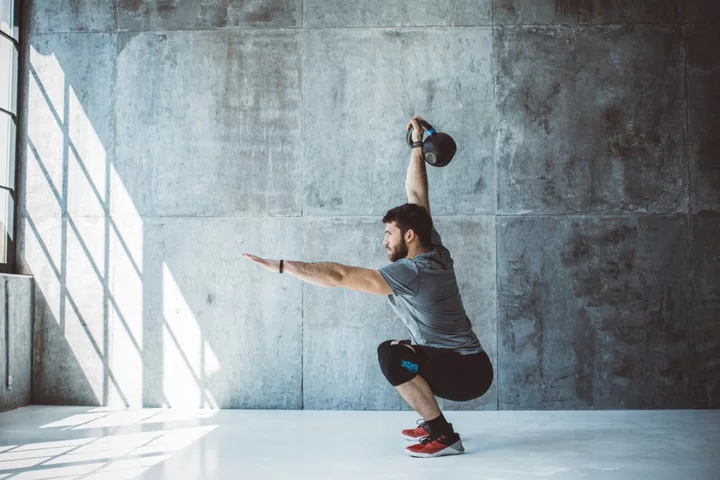
Sports culture is ‘intimidating’ and putting people off working out, study finds
Intimidating sports culture is putting millions off working out – as many are feeling alienated by the exercise industry. A poll of 2,000 adults who don’t exercise found 68 per cent feel too embarrassed to go to the gym because they don’t fit the mould of the “typical” gym goer. More than three-quarters (78 per cent) don’t find sports adverts motivating and 33 per cent say adverts actually put them off working out. However, 55 per cent would be more likely to exercise if they saw everyday people in sports adverts. And 20 per cent would be more inspired to do something active if there were more realistic expectations set by the industry. A further 29 per cent say sports brands aren’t relatable to them, and a quarter think exercise culture is intimidating. While 49 per cent wish they had more confidence to exercise. The research was commissioned by ASICS as part of its ‘New Personal Best’ campaign, which is calling out performance-obsessed exercise culture in partnership with mental health charity Mind. Gary Raucher, European vice president for the sportswear brand, said: “The sports industry has been telling us for years that the only thing that matters is a faster time, a longer distance, a higher score, and more reps. “Although it’s aimed at motivating people, our research shows it’s having the reverse effect and instead creates an intimidating culture that’s putting people off exercise – something we’re committed to change.” As part of the research, survey respondents were shown a series of marketing images from sportswear and athletic brands and asked to comment on how the pictures made them feel. Just over one in 10 (12 per cent) said the images made them feel ‘inferior’, 13 per cent felt intimidated and for seven per cent, the images even made them feel depressed. It was found 16 per cent typically come across these types of images on social media, with 42 per cent admitting seeing boastful exercise posts makes them feel like a failure – even before they’ve started exercising. Hayley Jarvis, head of physical activity at Mind, added: “For people who don’t exercise, taking that first step can be daunting, especially if they’re also experiencing a mental health problem. “When you add the pressure of performance so often seen in sports marketing or on social media, for some it can feel impossible to get started as they don’t feel like they’re ‘good enough’. “Getting active can play a vital role in helping us stay and live well with mental health problems.” The survey, which was conducted via OnePoll.com, also found 23 per cent of non-exercisers feel too embarrassed to start now, and nearly one in five (18 per cent) worry people would judge them as they are too unfit. Over three quarters (77 per cent) admitted they are aware of the mental health benefits of exercise. But despite 61 per cent saying they have either personally experienced a mental health problem or know someone who has, it is still not motivation enough to get them moving. Mental health activist and TV personality Dr Alex George, who is supporting the ASICS campaign, said: “As someone who is passionate about the benefits of exercise on mental health, it’s upsetting but unsurprising that people feel excluded and alienated by the sports industry. “I too have felt intimidated and insecure after comparing my performance and results to others. “People need to know that regardless of the type of exercise they do, or the times or distances they achieve, any movement benefits mental health and is something that should be celebrated.” The ‘New Personal Best’ campaign features everyday people and is encouraging them to share their own ‘personal best’ images on social media using the hashtag #NewPersonalBest on World Mental Health Day, 10th October. One of which is Tom Durnin, whose inspirational story caught the sports brand’s attention when he finished in last place at the London Marathon 2023. He said: “For me, it was all about crossing that finish line no matter how long it took me. I run purely because it makes me feel good, I don’t worry about my time or being the slowest. “I never thought I’d ever be the face of a sports campaign but I’m honoured to be partnering with ASICS to encourage more people to move for their mental health. “If my story can inspire at least one person to take the first step that’s all I could ask for.” Read More Brits reveal advice they would give their younger selves - including investing in property Girls in UK have much lower confidence than male peers, study finds Average person completes 90 online tasks a day Israel-Hamas conflict: How to talk to teenagers about distressing news stories How to get rid of bedbugs: Signs and symptoms amid threat of UK invasion How to support someone coming out in their 30s and beyond
1970-01-01 08:00
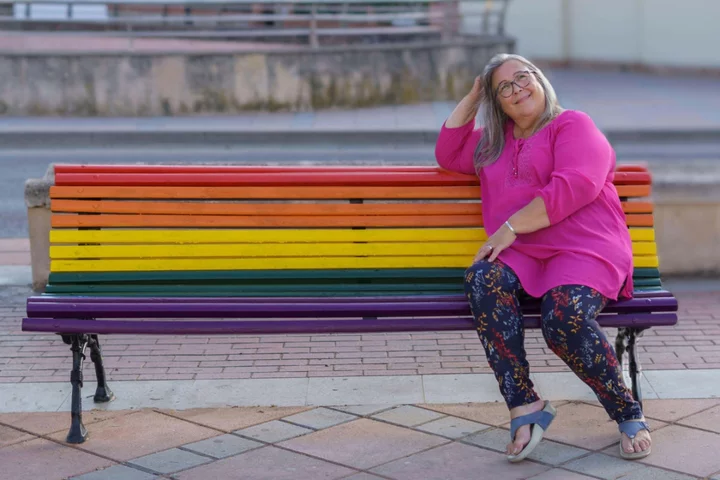
How to support someone coming out in their 30s and beyond
Coming out can be hard at any age, but by the time you’re well into adulthood it may feel terrifying, and be completely life-changing. Many people who come out in their thirties and onwards may have wanted to for a long time but not felt safe enough to do so. As October 11 marks National Coming Out Day, it’s important to reflect on how, if and when people can share their authentic selves. “I wasn’t raised in a time when it felt safe to express attraction to women,” says author and creative mentor Fiona Fletcher Reid, who came out last year at the age of 35. “I wasn’t sure about my sexuality until I had psychosexual therapy and was able to explore all the layers of internalised homophobia and repression that I had accumulated over my 35 years,” she says. So, how you can support someone who is going through it? Don’t assume everyone is the same Not every person’s coming out looks the same, and some LGBTQ+ experiences are not universal. “Coming out is a personal experience and because it is often physically and emotionally dangerous to be openly queer, lots of people never feel able to be open,” says Fletcher Reid, now 36. “Some people might feel free to come out once they have ended a particular relationship, or after meeting people who they feel safe around. “For others, like me, it’s that we don’t consciously acknowledge our sexuality until we are a lot older and have the confidence to work through the emotional implications and real-life consequences that come with that,” The writer, from Glasgow, was going through a divorce at the time with a man she’d been with since the age of 17. “During therapy, I talked a lot about the pain I was experiencing during intercourse as well as my general anxiety around sex. It wasn’t until I’d built up a trusting relationship with my therapist that I felt able to discuss the fact that I thought I might be gay and I did not expect that to come up, so I was just as surprised as everyone else when I came out.” Don’t question their authenticity Validate what the person who has come out is saying. “Don’t say, ‘Are you sure?’ because you can rest assured that the person coming out to you has thought long and hard about this,” says Fletcher Reid. “Casting self-doubt on someone when they have opened up a vulnerable part of themselves to you is hurtful.” Don’t question them about their sex life It’s no one else’s business. “Please don’t ask about whether they have been intimate with anyone, or any other sort of suggestion that they need to ‘prove’ their sexuality to you,” she stresses. Consider what they feel and accept that it is a big deal They are probably feeling “a mix of emotions, including excited, happy, empowered and scared for their safety”, says Fletcher Reid. “Sadly coming out can still cause huge ruptures in relationships so be aware that this is a huge moment for them and comes with real consequences. “Dismissing their experience as ‘not a big deal’ because you think it’s ‘normal to be gay’ now is a dangerous and false narrative.” It may sound simple, but just listening and supporting them is vital. “Be there to listen and try to celebrate all the new things that they are exploring as they come out, whether that’s dating, meeting new people or finding ways to experiment with their identity through fashion,” says Fletcher Reid. “Repeat often that you love and care for them and that you accept this evolution of them, that you are happy to see them happy.” Suggest they find community “Encourage them to talk to other people who have been through similar experiences if you can,” she says. “As much as friends and family want to understand what they are going through, it is far more validating to talk to someone else who has come out later in life and understands the emotional intricacies of the experience. “They can also hopefully show them that there are good times ahead.” Thank them for sharing with you “It is a privilege that someone trusts you with coming out, especially later in life. Tell them that you are honoured to have been trusted with this information, and reassure them that you will keep it private until they are ready to tell other people,” Fletcher Reid suggests. “The best reactions that I had from people were seeing their joy that I had discovered this important part of myself, and that had a huge impact on my ability to feel hopeful amidst the pain caused by my divorce. “Allowing them to feel conflicted and guilty and offering reassurance that they have the right to be themselves will make them feel so much happier.” Read More Israel-Hamas conflict: How to talk to teenagers about distressing news stories Autumn décor ideas for a seasonal refresh Why you shouldn’t tidy your garden too much in autumn World Mental Health Day: 5 ways to beat anxiety and change your life Alternative veg to grow for next season How to spot if your child is struggling with their mental health – and what to do next
1970-01-01 08:00
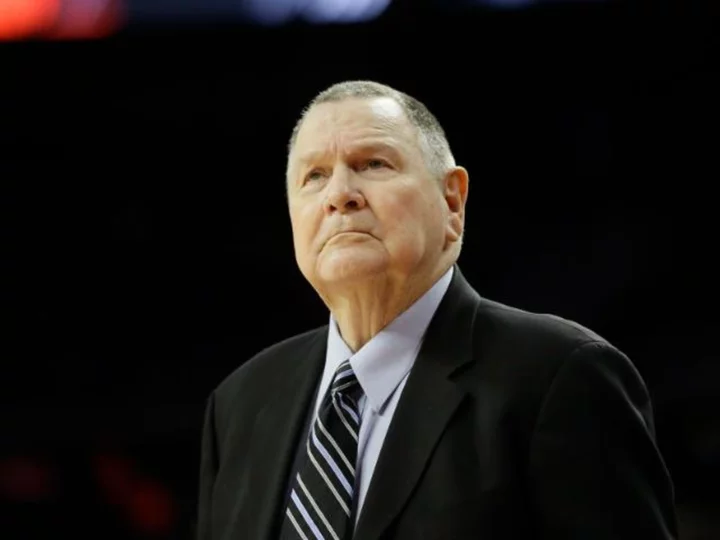
Brendan Malone, former NBA coach and father of current NBA Champion, dies at 81
Brendan Malone, a former NBA head coach and longtime assistant coach, died Tuesday at 81, per NBA.com.
1970-01-01 08:00
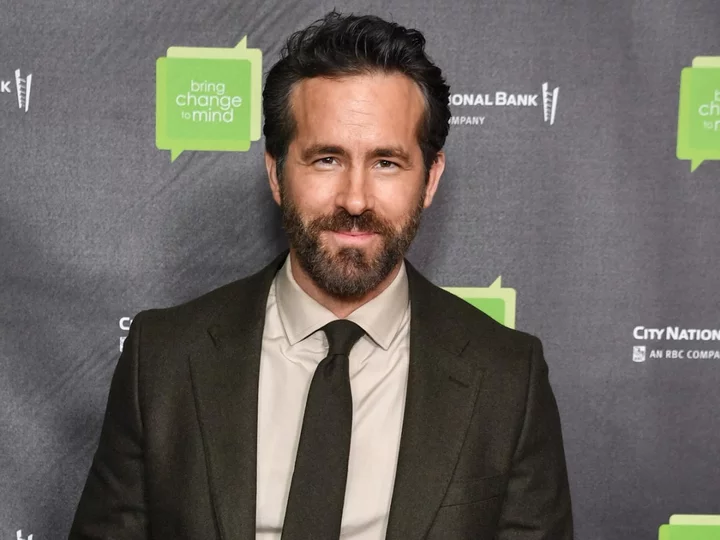
Ryan Reynolds opens up about how his mental health spins ‘out of control’
Ryan Reynolds has spoken candidly about his mental health, revealing that his mind can “spin out of control” sometimes. The actor, 46, spoke candidly about his mental health challenges during an interview with Page Six on 9 October, while attending non-profit organisation Bring Change to Mind’s annual Revels & Revelations Gala. Speaking to the outlet, he revealed that he’s found himself spinning “out of control” at times, before noting that he’s “not always great” at maintaining his mental equilibrium. However, Reynolds shared some routines that he follows when struggling with his mental health. “I certainly have my own little rituals and those kinds of things that help me stay grounded and keep my mind from spinning out of control,” he said. “Sometimes I’m really good at it, sometimes I’m not.” The Deadpool star noted that when he becomes aware of those “out of control” moments, he meditates in order to “take the time” for himself to regroup. He also shared how he’s become aware of his own lifestyle traits that he wants to work on amid his mental health struggles. “I tend to overbook myself when I’m spiraling that way,” he said. “I’m sort of aware of that stuff and I manage it as well as you can.” This isn’t the first time that Reynolds has spoken out about his mental health. He first opened up about his struggles with anxiety in February 2022 during an appearance on CBS’s Sunday Morning. “I’ve had anxiety my whole life really and you know, I feel like I have two parts of my personality. That one takes over when that happens,” he said. He also recalled how his feelings of anxiety would intensify before appearances on talk shows, such as Late Night With David Letterman. “I remember I’d be standing backstage before the curtain would open,” he said. “And I would think to myself: ‘I’m gonna die. I’m literally gonna die here. The curtain’s gonna open and I’m just gonna be a symphony of vomit.’ Just, like, something horrible’s gonna happen!” The Green Lantern star then noted that “as soon as that curtain opens” before he goes on stage, “this little guy takes over” that ultimately helps him manage his anxiety. “And he’s like: ‘I got this. You’re cool.’ I feel, like, my heart rate drop and my breathing calm, and I just sort of go out and I’m this different person. And I leave that interview going: ‘God, I’d love to be that guy!’” he said. During his appearance at Bring Change to Mind’s event on 11 October, Reynolds also discussed conversations that he and his wife, Blake Lively, have with their children about mental health. “I think it’s more about talking to them about everything,” he told People at the gala. “It’s genuine when I say I take a huge interest in their days and how things are going.” Reynolds and Lively, who’ve been married since 2012, share three daughters: James, eight, Inez, seven, and Betty, four. In February, they welcomed their fourth child, whose name hasn’t been publicly revealed. The Free Guy star also explained that the “best time” of his day is when he walks his children to and from school. When discussing some of the challenges that children often face, Reynolds praised his daughters for the self-awareness they’ve developed. “I think as parents, we are so much better equipped to handle the rigours of childhood through our kids now than when I was a kid. It’s just totally different now,” he said. “People are much more self-aware. And that’s the thing we sort of hang our hat on the most is self-awareness with our kids. Not be happy, not be anything, just be self-aware and welcome everything in.” Read More Ryan Reynolds describes experience attending Travis Kelce’s game with Taylor Swift From double dates to parenthood: A timeline of Blake Lively and Ryan Reynolds’ relationship NFL defends Taylor Swift coverage during games as Travis Kelce says they’re ‘overdoing it’ Ryan Reynolds describes experience attending Travis Kelce’s game with Taylor Swift Pokemon’s Detective Pikachu Returns and more top games of the week Travis Kelce reveals the two people who helped him woo Taylor Swift
1970-01-01 08:00
